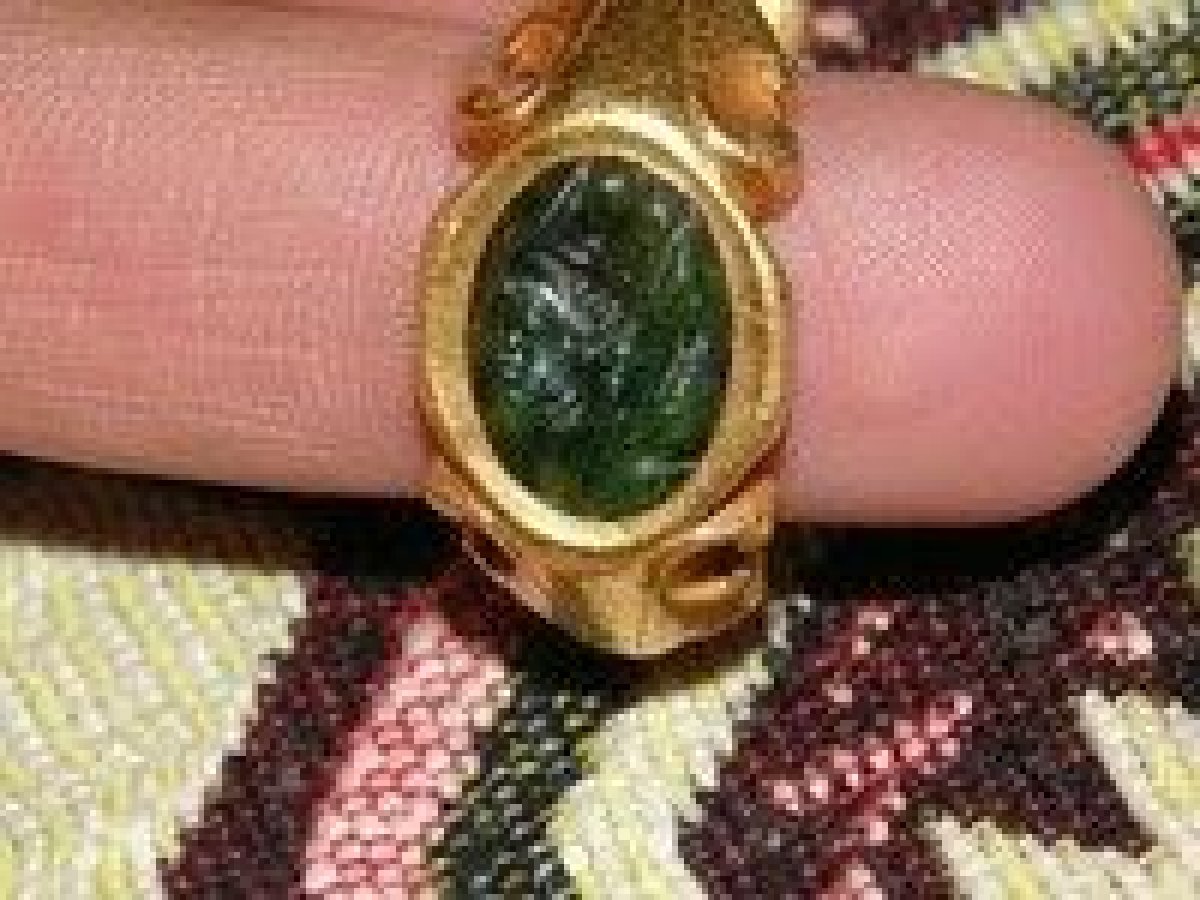
The Department of Justice is ramping up efforts to take back ancient jewels the Islamic State militant group (ISIS) is allegedly using to fund its terrorist operations.
After filing a civil complaint in December 2016 seeking the forfeiture of four of the artifacts, the federal law enforcement department announced on Wednesday it is seeking a warrant from the United States District Court for Washington D.C. to seize a gold gemstone ring believed to date back to anywhere between 323 BC — 31 BC. The jewelry was originally peddled by the head of the ISIS unit in charge of finding and selling relics, Abu Sayyaf, who helped alert authorities to the terrorist unit's elaborate scheme to make money off antiques by leaving behind documentation of the group's strategy.

After Sayyaf was killed in a raid on his home in Syria in May 2015, authorities recovered digital photographs of seven jewels it had appeared he planned to sell, according to the motion for the warrant. Authorities concluded he was planning to sell the artifacts because of the style, lighting and focus of the photos showing them, in addition to the way the jewels had been shined to remove any tarnishes.
Investigators also found documents that revealed ISIS had established a Ministry of Natural Resources, Department of Antiquities, whose operations included hawking off ancient artifacts it excavated from areas it controlled. Sayyaf and his associates collected 20 percent of all antiques sold or passed through ISIS territory and allegedly deposited money from the sales in ISIS's coffers, according to the filing.
Through confidential sources, investigators were able to track down the ring—which has a dark green gemstone encased in gold—to Turkey. Authorities discovered the piece of jewelry had been sold by a Syrian antiquities trafficker with connections to Sayyaf to a person in Turkey for approximately $250,000, the Department of Justice said.
The ring is comprised of a gold band encircling a dark green gemstone that is carved with an image of a person's head, shoulders and chest. Experts told the Department of Justice that the head could depict a goddess named Tyche, who is the daughter of Aphrodite and Zeus. Previous photos of the ring showed dirt packed into its cracks, giving investigators reason to believe it had been recently excavated.
The Turkish government confiscated the ring and now has it in its possession. By filing for a warrant, the United States is asking the court to grant it permission to pursue the jewelry and start proceedings with Turkey—which has a bilateral treaty with the U.S.—to find out who it really belongs to.
"We want to get these things returned to their rightful owner. They were used to fund terrorism and they were a victim," Arvind Lal, assistant United States attorney, told Newsweek, referring to the jewels, which are considered the defendants in this case.
Experts from the United States and Turkey will then work together to determine where the jewelry comes from, whether that be Syria or even Turkey, and give it back to its home government. If the duo are unable to find an owner, the United States will take it to ensure it stays out of the hands of ISIS, according to Lal.
Along with the ring, the Department of Justice also is in the process of returning other artifacts, including two gold coins, a carved stone, a gold brooch and gold necklace with a matching brooch, that are estimated to be worth hundreds of thousands of dollars, according to the Department of Justice.
But lawyers have not yet released details on the whereabouts of the relics—if they are known at all—in order to protect the investigation, Lal said.
Uncommon Knowledge
Newsweek is committed to challenging conventional wisdom and finding connections in the search for common ground.
Newsweek is committed to challenging conventional wisdom and finding connections in the search for common ground.
About the writer
Lauren is a breaking news reporter. Before Newsweek, she worked as a reporter for The Brooklyn Paper covering local news and ... Read more
To read how Newsweek uses AI as a newsroom tool, Click here.








